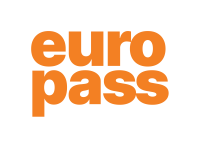
Designing Inclusive Learning Environments to Support all Students
Participants will learn to establish a framework of inclusive values and practices, both within a school and in collaboration between institutions, as a strategy to deal with diversity in an appropriate and sensitive manner. They will discover how to overcome contingent barriers to participation, as well as how to use relevant ICT tools to make mainstream education inclusive, for disadvantaged lea
Description
Inclusive education can be seen as a process of strengthening the capacity of an educational system to reach out to all learners in the community. This course has been tailored for teachers dealing with classroom diversity and disadvantaged learners, including those with special educational needs or a migrant background. Specifically, participants will acquire or improve their knowledge regarding:
- Defining inclusive education, key principles, and values;
- Understanding the process of inclusion/Addressing barriers to participation, learning and resources to support all students within schools;
- Using ICT tools to support all learners in inclusive settings;
- Collaboration within school communities (teachers, teaching assistants, students, parents/carers) in order to establish a framework of inclusive values and practices (e.g. co-teaching involving a general education and a special education teacher).
Upon completion of the course participants using reflective techniques such as “Index for Inclusion” are expected to develop intervention plans through a range of activities (e.g. case studies, hands-on activities) aimed towards enhancing participation, learning, and achievement of inclusive mainstream education for all students, specifically for disadvantaged learners, including those with special educational needs and migrant background, thereby fostering social inclusion.
Learning objectives
The course will help the participants to understand how to:
- Face diversity and identify the barriers to participation and learning arising within schools;
- Draw up development priorities and planning interventions to support diversity (e.g. curricula adaptations, design of differentiated lessons);
- Use alternative learning practices, techniques, materials, and associated assessment tools to review development;
- Use ICT to support all learners in inclusive settings;
- Foster collaboration within the school community (teachers, students, parents/carers) in order to establish a framework of inclusive values and support students’ participation and achievement in sustainable school systems;
- Understand the key features of an inclusive learning environment.
--> Download all course info in PDF <--
Methodology & assessment
Certification details
Here's how we ensure your achievements are recognized and validated:
- Certificate of Attendance: Upon successful completion of your course, you will receive a Certificate of Attendance in line with Erasmus quality standards.
- Europass Mobility Certificate: If requested, you can also receive the Europass Mobility Certificate.
- Seamless Administration: We provide assistance and guidance to our participants throughout every step of the project: from the grant application to the final documents.
To make your participation accessible, our courses are designed to allow you to request 8 days of individual support for your subsistence costs. This includes 6 days for the course and an additional 2 days for travel.
Useful resources:
- Live Chat support: Monday-Friday | 8:30-22:30 CET
- FAQ
- Guides to Erasmus+
- OID Numbers and Fiscal Data
A 60 € late registration fee will be applied if you register less than 8 weeks before the course start date.
Pricing, packages and other information
-
Price:480Euro
Additional information
-
Language:English
-
Target audience ISCED:Primary education (ISCED 1)Lower secondary education (ISCED 2)Upper secondary education (ISCED 3)
-
Target audience type:TeacherHead Teacher / PrincipalPedagogical Adviser
-
Learning time:25 hours or more
Past sessions
More courses by this organiser

The Ecocentric Approach: Introducing Sustainability in Education



